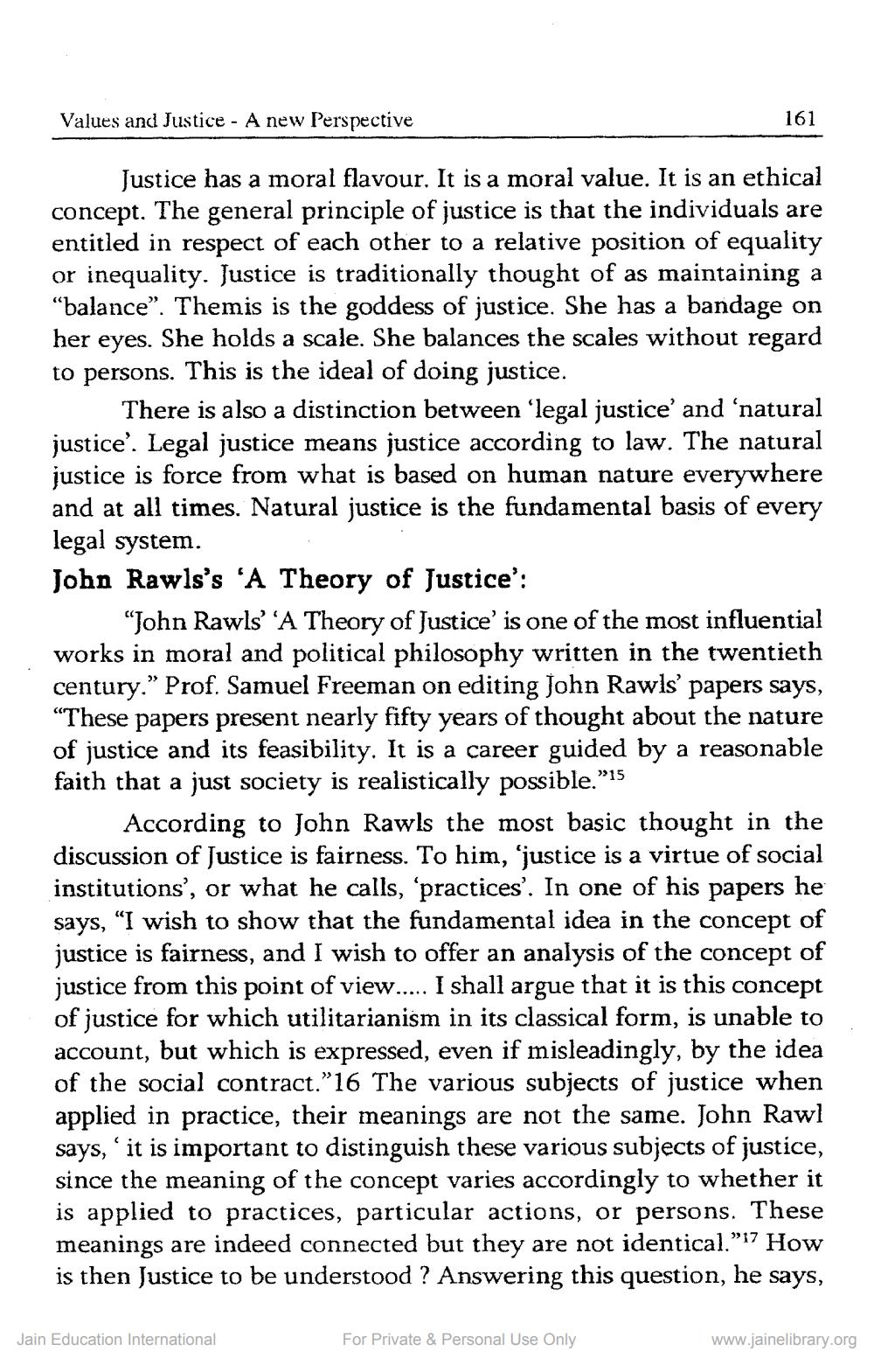________________
Values and Justice - A new Perspective
Justice has a moral flavour. It is a moral value. It is an ethical concept. The general principle of justice is that the individuals are entitled in respect of each other to a relative position of equality or inequality. Justice is traditionally thought of as maintaining a "balance". Themis is the goddess of justice. She has a bandage on her eyes. She holds a scale. She balances the scales without regard to persons. This is the ideal of doing justice.
There is also a distinction between 'legal justice' and 'natural justice'. Legal justice means justice according to law. The natural justice is force from what is based on human nature everywhere and at all times. Natural justice is the fundamental basis of every legal system.
John Rawls's 'A Theory of Justice':
"John Rawls' 'A Theory of Justice' is one of the most influential works in moral and political philosophy written in the twentieth century." Prof. Samuel Freeman on editing John Rawls' papers says, "These papers present nearly fifty years of thought about the nature of justice and its feasibility. It is a career guided by a reasonable faith that a just society is realistically possible."
"15
161
According to John Rawls the most basic thought in the discussion of Justice is fairness. To him, 'justice is a virtue of social institutions', or what he calls, 'practices'. In one of his papers he says, "I wish to show that the fundamental idea in the concept of justice is fairness, and I wish to offer an analysis of the concept of justice from this point of view..... I shall argue that it is this concept of justice for which utilitarianism in its classical form, is unable to account, but which is expressed, even if misleadingly, by the idea of the social contract."16 The various subjects of justice when applied in practice, their meanings are not the same. John Rawl says, it is important to distinguish these various subjects of justice, since the meaning of the concept varies accordingly to whether it is applied to practices, particular actions, or persons. These meanings are indeed connected but they are not identical."1? How is then Justice to be understood? Answering this question, he says,
Jain Education International
For Private & Personal Use Only
www.jainelibrary.org




